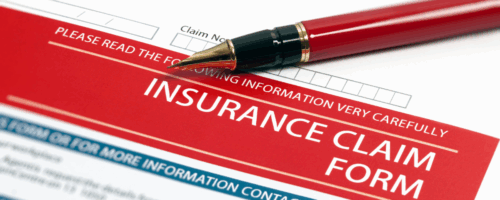Disclaimer: This blog post is for informational purposes only and does not constitute legal advice. Please consult an attorney for guidance on specific laws regarding Remote Online Notarization (RON), digital signatures, and related legal matters. As laws concerning RON and notarization are subject to frequent changes, it is advisable to verify current regulations with your local government.
Have you ever signed a document and then been asked to swear that it’s true? This is where the jurat may come into play. Picture yourself standing before an officer who holds your credibility in their hands.
A jurat can be seen as the core of truth in legal documents. But why is this so important?
The answer may lie within stacks of affidavits and sworn statements. With each signature or click, the authenticity of the statement can be confirmed.
Curious? Let’s explore how jurats may influence everything from court proceedings to real estate transactions.
Ready to dive into the world of notarial acts?
Understanding Jurat and Its Role in Notarial Acts
A jurat is a notarial act that is used to confirm the truthfulness of a document’s contents. It typically involves a person swearing or affirming, under oath, that the information in the document is true to the best of their knowledge.
Here’s how it works:
- Sworn Statement: The individual signing the document (called the “affiant”) must swear or affirm that the contents of the document are true.
- Role of the Notary Public: A Notary Public is the official who witnesses the affiant’s signature and administers the oath or affirmation. The notary helps ensure that the signer understands the document and is voluntarily agreeing to its contents.
- Documentation: After the signer takes the oath or affirmation, the notary adds a statement (the jurat) to the document. This includes the date, the notary’s signature, and the official seal. The notary may also record the details of the act in their journal.
- Admissibility: A jurat may be required for a document to be considered valid in legal proceedings, such as court cases or real estate transactions.
In essence, a jurat helps verify that the signer has sworn that the document’s contents are true, making the document more credible and legally binding.
Distinguishing Between Notary Acknowledgement and Jurat Certificate
Notarial acts like acknowledgments and jurats may be essential in affirming the authenticity of a document.
An acknowledgment certificate typically applies when a signer declares to a notary that they are who they say they are and that they willingly signed a document. Signing the document may have happened before the signer appeared before the notary, or in front of the notary.
A jurat goes a step beyond, and requires the signer to swear an oath in front of the notary that the contents of the document being signed is the truth. ry.
This isn’t merely a bureaucratic formality; it can be crucial for ensuring trust in the legal system by helping prevent fraud. For example, it may be reassuring to know that someone can’t easily impersonate you and sell your property.
However, if you’re unsure which notarial act is required for your situation, it may be wise to consult an attorney for guidance.
The Significance of Notarial Certificates in Legal Documents
Notarial certificates, including jurat and acknowledgment certificates, may hold significant importance in legal documents. They can act as a stamp of authenticity, similar to the way a limited edition comic book might be verified for its value.
A certificate attached to a document indicates that it has likely been notarized by a recognized authority, similar to having an official figure overseeing a situation. A jurat or an acknowledgment certificate may verify that the signer has willingly signed the document, much like giving consent before embarking on a thrilling experience.
In some states, positive identification may be required for both acknowledgments and jurats, similar to the way ID might be requested at a bar even for regular patrons. But why does this matter?
The wording of the certificate can be important because it plays a distinct role in legal documents. An incorrect phrasing may potentially change the intent of the document.
Notary Public: An Essential Role in Jurat Process
A notary public can play a vital role in the jurat process. But what exactly does this involve? Let’s take a closer look at the responsibilities and significance of a notary public in the jurat process.
Responsibilities of a Notary Public
In performing a jurat, the notary public, who is also referred to as a commissioned notary, may have several key responsibilities. First, they are often required to help ensure that the signer personally appears before them and signs the document in their presence. This step is crucial, as the notary’s presence helps verify that the signature is authentic, preventing fraudulent actions. There may not be shortcuts in this process—no one else can sign on behalf of the person, and the signer must be physically present.
However, the notary’s duties don’t end there. Beyond simply witnessing the signature, the notary must often also administer an oath or affirmation for each individual signing any documents being notarized under their supervision. This step involves asking the signer to swear or affirm that the contents of the document are truthful to the best of their knowledge. By doing this, the notary is ensuring that the signer fully understands the importance of their statement and is legally committing to the truthfulness of the document.
While this might seem like a simple task, it can require significant attention to detail. The notary’s role is to ensure that all procedures are followed carefully, and the correct documentation is completed. The authenticity of legal proceedings can depend on how thoroughly and accurately these tasks are performed by the notary. A failure to correctly execute the jurat process can lead to the document being deemed invalid, which could have serious legal consequences.
You might wonder why such diligence is necessary. When someone swears or affirms the truthfulness of a document, they are risking their personal and professional reputation. By signing and affirming the contents, the signer is legally bound to the accuracy of their statements. This makes every journal entry recorded by the notary crucial for preserving the integrity of the document and ensuring that the process is transparent and legally sound. The notary’s careful attention to detail can be the difference between a legitimate legal process and potential disputes or fraud.
In addition to the direct responsibilities, the notary also maintains a journal of all notarial acts. This record may include details such as the date, time, type of document, and the identities of the individuals involved. This journal entry can provide an important reference in case the document or the notarial act is ever questioned, adding an extra layer of protection against fraud and ensuring accountability.
In essence, while the notary public’s role in the jurat process may seem routine, it can be one of the most critical steps in safeguarding the truthfulness of legal documents and preserving the integrity of legal proceedings.
Click to Tweet
The Rise of Online Notarization and Document Authentication
As technology has advanced, online notarization may be a useful tool for simplifying the process. No longer do you need to physically visit a notary; technology can now allow documents to be notarized from virtually anywhere if you have a device with a stable internet connection and audio-visual capabilities.
Companies like NotaryCam, among others, may offer such services. They use state-of-the-art identity verification methods to ensure that it is truly you who is signing the document.
So how does this process work? You can sign digitally in front of an e-notary using secure video conferencing tools. The notary, or public officer, can then sign their part as well, in real time. All actions can be recorded as journal entries.
This process may follow state law requirements closely, with every detail being checked and double-checked before any action is taken. This includes verifying identification using satisfactory evidence, such as a driver’s license or passport.
Laws regarding online notarization can vary from state to state, so it may be helpful to consult with an attorney to ensure you are following the correct procedures for your specific location.
Benefits of Remote Online Notarization (RON) for the Jurat Process
Remote Online Notarization (RON) can offer several benefits when it comes to the jurat process, making it more convenient, efficient, and secure for both signers and notaries.
- Convenience and Accessibility: RON may allow signers to complete the jurat process from anywhere, without needing to visit a notary in person. This can be especially beneficial for individuals in remote areas, those with mobility issues, or anyone with a busy schedule. Signers can connect with an e-notary through video conferencing tools, eliminating the need for travel or scheduling conflicts.
- Enhanced Security: RON can provide additional security measures, such as advanced identity verification methods. These may include multi-factor authentication and document verification, which can help ensure that the person signing the document is indeed who they claim to be. This may reduce the risk of fraud or impersonation in the notarization process.
- Time Efficiency: The jurat process using RON can be completed in real-time, with the signer and e-notary interacting instantly through video conferencing. This can speed up the notarization process compared to traditional methods, where you may have to wait for an appointment or for physical signatures to be exchanged.
- Legal Compliance: Many RON platforms can ensure that the notarization process complies with state laws and regulations. These platforms typically adhere to stringent requirements, such as verifying identification through government-issued IDs, recording video sessions, and maintaining digital journal entries. This can help provide peace of mind that the process is being completed in accordance with legal standards.
- Convenience for Legal Professionals: Attorneys and other legal professionals can also benefit from RON, as it may allow them to facilitate the jurat process for clients in a more efficient and flexible way. RON can make it easier to execute legal documents remotely, especially in situations where parties are in different locations or when time is of the essence.
In summary, RON may offer a more streamlined, secure, and accessible way to complete the jurat process, making it a valuable option for many individuals and businesses. However, it’s important to verify that RON is permitted in your state and consult with an attorney if needed to ensure compliance with local laws.
Conclusion
A jurat is an essential notarial act that can play a crucial role in verifying the truthfulness of a document. It involves a signer swearing or affirming the contents of the document in front of a notary, who then administers an oath and ensures the authenticity of the statement. This process can provide legal assurance that the document’s contents are truthful, making it vital for legal proceedings, affidavits, and sworn statements.
You may need a jurat whenever you are submitting a document that requires a formal affirmation of truth, such as in court cases or official declarations. Without a jurat, the document may lack the legal weight and credibility it needs to be considered valid.
To get a document notarized, you can schedule an appointment with a notary public, either in person or through Remote Online Notarization (RON) services, depending on your location. The notary will verify your identity, witness your signature, and administer the oath or affirmation required to complete the jurat process. Keep in mind that laws can vary by state, so it may be helpful to consult with an attorney to ensure compliance with local regulations.
In summary, jurats are crucial for ensuring the integrity and truthfulness of important legal documents, and understanding the process can help you navigate the notarization requirements effectively.
Common Questions About a Jurat
What is the difference between a jurat and a notary?
A notary is a licensed professional who may be authorized to perform certain legal formalities, often involving the witnessing of signatures on documents. Their primary role can be to prevent fraud by verifying identities and ensuring that individuals are willingly participating.
A jurat, on the other hand, is one specific task that a notary may perform. It involves an official written statement swearing that certain facts in a document are true, typically requiring both a signature and an oath or affirmation from the person signing the document.
In essence, while the term ‘notary’ refers to the individual performing legal tasks, a ‘jurat’ can refer to a specific notarial act where an oath or affirmation is involved.
What is the main purpose of a jurat?
The primary purpose of a jurat, also known as an affidavit, is to help ensure that the signer of a document asserts and swears under oath that the contents within are true. The notary public administers an oath or affirmation to verify this truthfulness. Unlike acknowledgments where only signature authenticity matters, in jurats, signers confirm their understanding and belief in the information contained in the document.
What do you say on the jurat oath?
A jurat oath, or affirmation, is a formal declaration made by the signer of a document in front of a notary public. The exact wording may vary by jurisdiction but generally includes language such as:
“Do you solemnly swear (or affirm) that the statements in this document are true to the best of your knowledge and belief, so help you God?”
The signer must respond affirmatively for the notarization process to proceed.
You should always consult with an attorney to help ensure your jurat contains the proper information and statements.
How do I get a jurat notarized using online notarization?
You can schedule a session with a RON-approved notary, verify your identity through an online platform, and sign your document digitally in front of the notary. The notary will then administer the oath or affirmation, and both parties will sign the document electronically. Since laws regarding electronic signatures may vary by jurisdiction, it can be helpful to check with an attorney to ensure that you are permitted to sign your document electronically in your specific location.







 Your Privacy Choices
Your Privacy Choices


